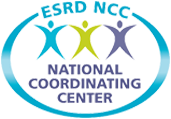Data can be any information, but often means numbers, counts, or statistics. Many grant applications ask for data. It can show why your program or project idea is needed. There are many places to find data to support your grant request. These can be:
- Research papers
- Surveys
- Public databases
- Government organizations
Support your grant application with reliable data. Go to trusted sources for information. These sites offer free and respected data.
- United States Renal Data System (USRDS)—Provides kidney specific information.
- United States Census Bureau—Offers general population census data.
- United States Census Bureau, Quick Facts—Gives statistics for all states and counties. Also has data for cities and towns with a population of 5,000 or more.
- Pew Research Center—Provides information about social issues, public opinion, and demographic trends shaping the United States.
- Advances for Healthcare Research and Quality (AHRQ)—Develops tools and data needed to improve the health care system.
- PubMed—Search for science and clinical medicine publications.
- Rural Health Information Hub―Helps you locate statistics and data related to rural health.
- ESRD Networks Summary Annual Report―Provides information about the impact of the ESRD Network Program.
- United States Census Bureau—Details how to use the resources on the United States Census Bureau website.
- Nonprofitready.org—Offers nonprofit skills with free online courses on fundraising and grant writing, including how to include data.
- What do funders look for in a grant proposal budget—A video that offers tips on how your proposal budget can add credibility to your grant application.
